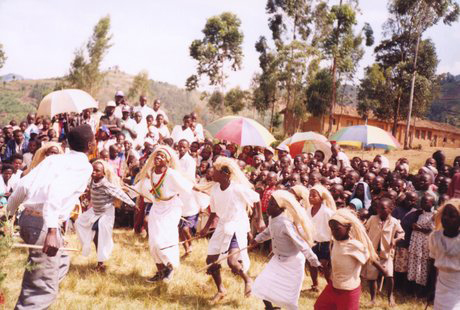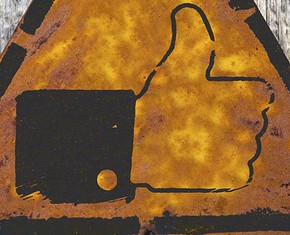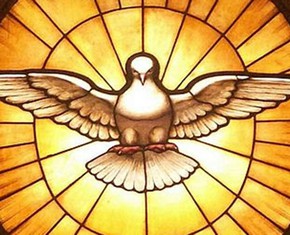The views expressed in our content reflect individual perspectives and do not represent the authoritative views of the Baha'i Faith.
Students of comparative religion often ask Baha’is questions about rituals.
Most of the older faith traditions have developed rituals over time, or have ritualized something the Prophet and Founder of their Faith asked His followers to do. Many readers will be familiar with the Christian Eucharist, for example, a memorial of the Passover supper Jesus Christ shared with His disciples.
Question: Is there a set of religious rituals that always occurs when Baha’is congregate?
No – Baha’is don’t have religious rituals. Baha’u’llah discouraged Baha’is from creating rituals, because they can begin to define the group, and eventually harden into dogmas that become more important than the spiritual teachings themselves.
RELATED: How to Become a Baha’i
Baha’is often do say prayers at the beginning and end of many gatherings. Prayer, after all, represents one of the ways we communicate with God; and it feels natural to say or chant prayers when Baha’is hold devotional meetings. These prayers, usually offered by individuals, may be spoken, chanted, or sung as the believer wishes. Baha’u’llah also wrote:
Intone, O My servant, the verses of God that have been received by thee, as intoned by them who have drawn nigh unto Him, that the sweetness of thy melody may kindle thine own soul, and attract the hearts of all men.
Whoso reciteth, in the privacy of his chamber, the verses revealed by God, the scattering angels of the Almighty shall scatter abroad the fragrance of the words uttered by his mouth, and shall cause the heart of every righteous man to throb.
Though he may, at first, remain unaware of its effect, yet the virtue of the grace vouchsafed unto him must needs sooner or later exercise its influence upon his soul. Thus have the mysteries of the Revelation of God been decreed by virtue of the Will of Him Who is the Source of power and wisdom.
Baha’is congregate for lots of reasons. Baha’is celebrate a spiritual “Feast” every nineteen days, observe the Baha’i Holy Days, get together for study circles and parties and elections and open meetings called firesides for seekers, and hold social and spiritual gatherings for a wide variety of other purposes. While Feasts have devotional, consultative and social portions, what those look like depends entirely on who hosts the event. At some Holy Days, Baha’is can say special prayers that have been revealed, but no actual ritual goes with the saying of the prayer.
Shoghi Effendi, the appointed Guardian of the Faith and Baha’u’llah’s great grandson, wrote in a letter that the Baha’is:
…should take great care lest any uniform procedure or ritual in this matter (in this case funerals) be adopted or imposed upon the friends. The danger in this, as in some other cases regarding Baha’i worship, is that a definite system of rigid rituals and practices be developed among the believers. The utmost simplicity and flexibility should be observed, and a selection from the Baha’i Sacred Writing should serve the purpose at the present time, provided this selection is not rigidly and uniformly adopted on all such occasions.
This flexibility is intentional, because the goal of the Baha’i Faith centers around creating unity in diversity, rather than uniformity. So, if you go to a Baha’i gathering in Pocatello, Idaho or on any other Indian reservation, you may find worship includes native dances, chanting, instruments or sand painting. If you go to one in Georgia, you may hear Gospel-style music. If you go to one in Mongolia, there will probably be native drummers. The host of a Baha’i meeting sets the tone and chooses the scriptures, music and atmosphere of worship – with the idea of building harmony and unity for all.
You May Also Like
Comments


















Hope you are well. I am facing a serious problem in my office and my employers are going to take a decision on my fate soon. I need urgent prayer for Divine intervention and to save my job. If possible, please send it to the Bahai Temple, where my prayer request can be read and followed on very soon. I need urgent help. I have the highest faith in the Lord. Praise the Lord!
Thank you very much.
Regards,
Yogesh
On the flip side of things Baha'is often reject the notion of even having traditions at all, so often you can't tell exactly what the even is that you are attending. Important days have a "texture" in peoples eyes. I often wish that I could walk in to a Baha'i gathering and just by the sights and smells (of food) could tell what day it was.
When the Bahai Faith was transported to the West, it was also transformed, particularly in America. Anti-clerical, anti-dogmatic and anti-catholic attitudes and a loft of millenial expectations and apocalypticism were supposed, by the early American Bahais, to be also Bahai teachings. So many of the early Bahai books say that the Bahai faith is a religion without rituals or church, that is has no organisation, and so forth, because the people of the time were looking for a religion that would be pure spirituality without any organisation or ritual. But that is not what Baha'u'llah brought. He brought a religion with new forms of organisation and ritual.
Religious rituals are the heart of the life of a religious community, and the Mashriqu'l-Adhkar or "Bahai house of worship" is both the central and the crowning institution of every Bahai community -- its purpose is as a place where we can perform the rites of prayer, recite the adhkar, hear the Word being read (a rite in itself) and raise our voices in praise. So we not only have rituals, we have institutions that serve them.
I think the seeming contradiction involves the word "ritual". I think it's worth looking at the meaning of the word. Here's Webster's:
a formal ceremony or series of acts that is always performed in the same way : an act or series of acts done in a particular situation and in the same way each time
1: the established form for ...a ceremony; specifically : the order of words prescribed for a religious ceremony
2
a : ritual observance; specifically : a system of rites
b : a ceremonial act or action
c : an act or series of acts regularly repeated in a set precise manner
These were the definitions I was working from and, judging by the wording of the question, so was the student. She references "a set of religious rituals" that Bahá'ís always do when we congregate. The examples you cite are not rituals, per se. For example, marriage is a rite within the Bahá'í Faith, but other than saying "We will all verily abide by the will of God" somewhere in the ceremony, there is no wedding ritual. My Bahá'í wedding and that of my son were very, very different in all but that one particular.
I think perhaps Shoghi Effendi is the deciding vote on this. Though he erected much of the organization that exists in the Bahá'í Faith—carrying out the wishes of Bahá'u'lláh and Abdu'l-Bahá—his words about rituals (some of which I quoted in the article) are to discourage us from developing them. In addition to the quote I referenced above, in which the Guardian warns about ritualizing Bahá'í community life, here is the text from a letter written on his behalf in 1949:
'Bahá'u'lláh has reduced all ritual and form to an absolute minimum in His Faith. ... Thus it can be seen that the Faith has certain simple rites prescribed by Bahá'u'lláh, such as the obligatory prayers, the marriage ceremony and the laws for the burial of the dead, but its teachings warn against developing them into a system of uniform and rigid rituals incorporating man-made forms of practices, such as exists in other religions where rituals usually consist of elaborate ceremonial practices performed by a member of the clergy. (Compilations, Lights of Guidance, p. 476)
So, to make a long comment short—I don't think we're in disagreement on the essentials. I think perhaps we are using the same word to mean two different things. By rituals, I mean what Shoghi Effendi addresses in his letters—"elaborate ceremonial practices" or a set of prescribed actions that occur in the same way in every congregation.